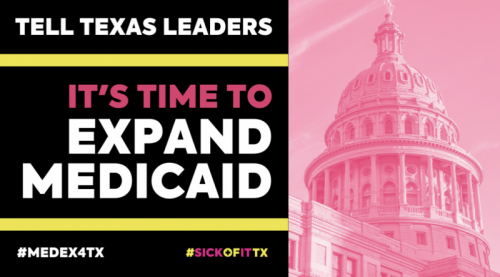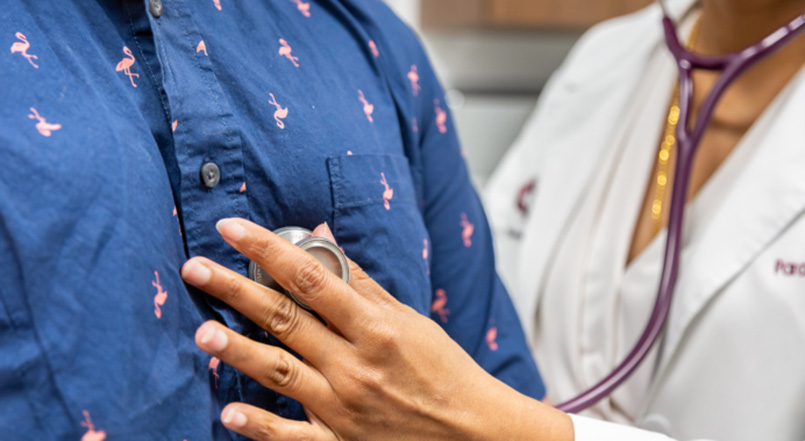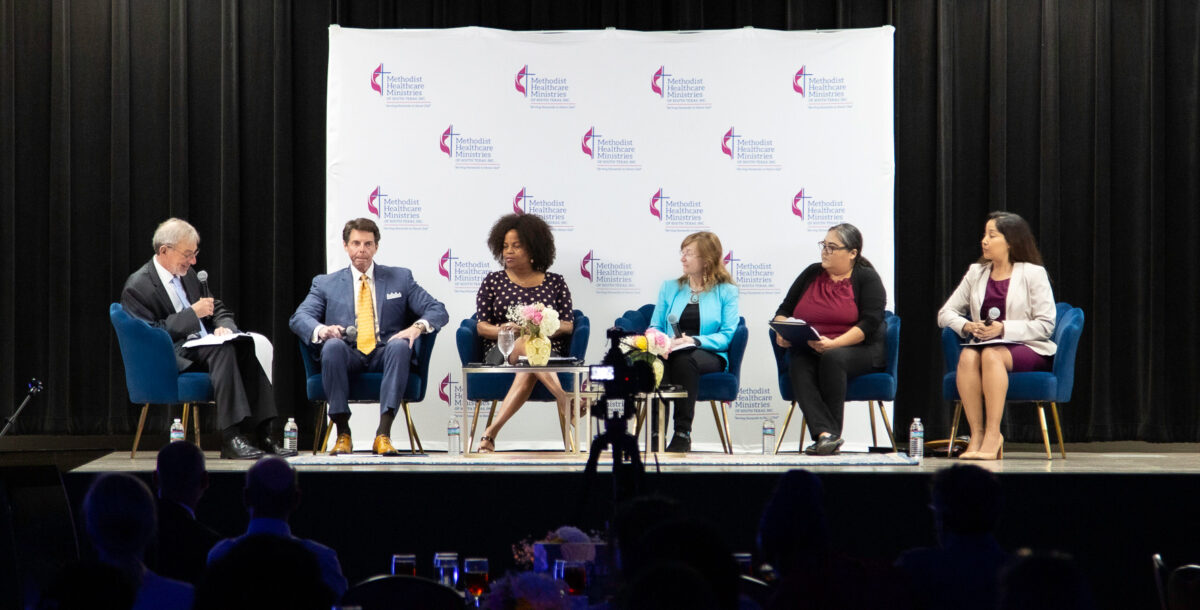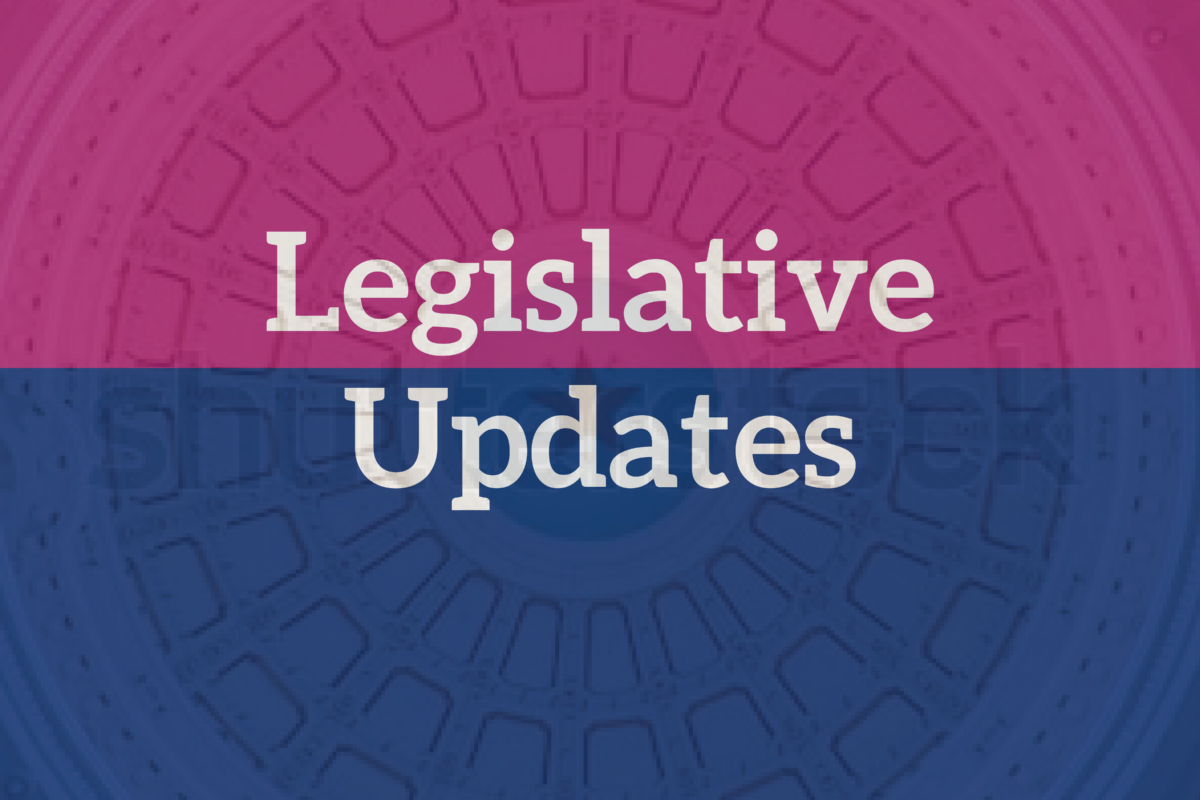
In this issue:
State Updates
Federal Updates
COVID-19 News
Upcoming Hearings
Upcoming Meetings & Events
|
|
Advocacy
In the news
Research
COVID-19 Dashboard

|
___________________________________________________________________________________________
State Updates
2020 Census Delay May Impact Texas Redistricting
The Census Bureau announced that the 2020 Census results will not be released until at least two months after the end of the ongoing 87th Legislative Session. The Bureau estimates that the data will not be available until after July of this year.
The results of the 2020 Census have been delayed by several months as a result of the COVID-19 pandemic. Last year, census workers faced many challenges posed by the public health crisis, limited resources, and numerous changes in policy from Washington D.C. In most instances, the first set of census data is distributed by December 31 of the census year and the second set by mid-February the following year. The 2020 Census results are expected to reflect large population gains in Texas of over 4.2 million residents since 2010.
The latest census data is crucial to Texas legislators who will be undertaking redistricting during this year’s state legislative session. Redistricting takes place every decade to ensure adequate representation for the state’s population. The 87thLegislature began on January 12th and adjourns after 140 days. With the latest census data being delayed well into summer, Texas lawmakers can expect to be called back to the capitol for a special session later in the year to complete redistricting responsibilities. To read more on the issue, click here.
Bexar County Mental Health and Substance Use Services Receives $3 Million
On January 26, the Bexar County Commissioners Court approved $2.2 million in general funds for a contract with the The Center for Health Care Services for the delivery of mental health treatment services for eligible individuals so as to circumvent the criminal justice system. In addition to the CHCS grant allocation, the Commissioner’s Court also approved a $1.4 million contract with San Antonio Lifetime Recovery to finance substance abuse services as part of the county’s Treatment Alternatives to Incarceration Program.
The Center for Health Care Services, in partnership with the Bexar County Mental Health Court, provide services to individuals with mental health needs as an alternative to incarceration. The Center also works to identify and remove individuals who have already been incarcerated and are in need treatment. In the past three years, the Mental Health Court has graduated 110 individuals from the program.
San Antonio Lifetime Recovery is an inpatient treatment center with services ranging from 45 to 90 days. The facility is currently housing 28 individuals who have been diverted from the Bexar County Jail for substance use disorder treatment.
TEA Offers Special Education Grant for Students Impacted by Pandemic
On January 28, the Texas Education Agency released an online application for the Supplementary Special Education Services (SSES) program. The SSES program allows children with cognitive disabilities and complex educational needs to receive a $1,500 online credit to be used within the SSES marketplace.
The program will be accepting the applications of approximately 18,000 students with cognitive disabilities across the state. Qualifying recipients of the one-time $1,500 grant will be able to purchase a broad range of educational resources and services to ensure the continuation of their educational progress despite limitations caused by the ongoing COVID-19 pandemic.
The Texas Education Agency is requesting that school systems across Texas encourage eligible families of K-12 students to complete the online application through the secure portal. Additional program information, resources, and the application can be found here. Any program and related eligibility questions should be directed to the SSES team at ssesinfo@tea.texas.gov.
HHSC Extends Emergency SNAP Benefits Through February
On February 2, the Texas Health and Human Services Commission (HHSC), announced $300 million in emergency Supplemental Nutrition Assistance Program (SNAP) food benefits for the month of February.
In addition to the issuance of $204 million SNAP benefits in January of this year, Governor Greg Abbott and the HHSC have extended the emergency benefits through February. Emergency SNAP benefits have been vital to Texans struggling with hunger which has been exacerbated by the ongoing COVID-19 pandemic. Eligible SNAP recipients will continue to receive the maximum allowable benefit in addition to a 15% increase in their total benefit. These benefits will be distributed to recipients’ accounts by February 28 and will continue monthly until June 2021.
For more information on the Supplemental Nutrition Assistance Program, click here.
Federal Updates
COVID-19 Special Enrollment Period Begins February 15
President Joe Biden issued an Executive Order on January 28 announcing that the U.S. Department of Health and Human Services (HHS) will open a Special Enrollment Period (SEP) in response to the COVID-19 Public Health Emergency. The SEP will give families the opportunity to enroll in 2021 health insurance coverage beginning February 15 and ending May 15, 2021.
HHS stated that during the SEP, individuals who are Marketplace-eligible consumers will be able to apply for new coverage or update an existing application online, by phone, or in person at a direct enrollment site. Residents from states with state-based Marketplaces (SBMs) can find locations to apply for health coverage here. Coverage can be expected to begin within a month after completing an application.
The Centers for Medicare and Medicaid Services will promote awareness and utilization of the SEP through a paid advertising campaign. A direct customer outreach in several languages will also be available to ensure a diverse range of communities are able to take advantage of this opportunity. The Biden Administration has allocated $50 million for SEP outreach and education.
To determine if you are eligible to enroll in the SEP, click here. More information on the Health Insurance Marketplace can be accessed here.
White House Contracts $230M for At-Home Rapid COVID-19 Tests
On February 1, the Biden administration announced a $232 million contract to the Australian-based Ellume for the development of at-home COVID-19 test kits. The United States is currently in the process of developing an American manufacturing facility that is expected to be finalized this summer.
The Biden Administration has arranged for the Australian facility to produce and ship 100,000 kits per month to the United States beginning February and ending in July when the U.S. facility is complete. At full capacity, the U.S facility is projected to produce up to 19 million test kits per month. The test is 95% effective at detecting the SARS-CoV-2 virus in both symptomatic and asymptomatic cases with results being available in as little as 15 minutes. The test is conducted using a self-administered nasal swab and the results are delivered via Bluetooth to any smartphone device.
The introduction of an at-home rapid testing option is expected to aid in reducing the spread of COVID-19. With the ability to test safely at home, health experts are optimistic that this convenient new mode of testing will give the country greater access to fast and accurate COVID-19 test results which is crucial to effectively combatting the virus.
COVID-19 NEWS
Current COVID-19 Variants Explained
The Center for Disease Control and Prevention (CDC) has identified that the coronavirus has mutated to create the B.1.1.7 United Kingdom variant, B1.351 South African variant and the P.1 Brazilian variant. The CDC has expressed that current limited research has not identified the variants to be deadlier. However, they are still more contagious than the original coronavirus strain responsible for the global COVID-19 pandemic.
Variants of the virus are discovered through randomized analysis of COVID-19 test samples submitted by providers. The current process allows for the possibility of some circulating SARS-CoV-2 variants to be missed. Texas is currently only able to break down the virus and observe its structure through a process known as sequencing. This information is then sent to the Utah Public Health Lab for variant identification. The state is currently working on creating its own identification infrastructure.
Scientists have expressed concern about the Brazilian variant due to its ability to spread the fastest of all known variants and has been shown to avoid original COVID-19 antibodies. Research at this time is limited and is not sufficient to make any assumptions on how the virus can impact a vaccinated population. Current COVID-19 vaccines are expected to still offer a level of protection to individuals against these variants.
As the vaccine rollout continues within Texas, health experts have urged the public to continue to take precautions such as undergoing COVID-19 testing, wearing a double mask, and social distance to avoid contracting or spreading the virus and its variants.
COVID-19 Vaccine Allocations for Week 8 of Distribution
The Department of State Health Services (DSHS) published a news releaseannouncing that Texas can expect to receive 520,425 first COVID-19 vaccine doses during Week 8 of vaccine allocations beginning February 1. The Center for Disease Control and Prevention (CDC) was instructed by DSHS to ship these doses to 344 providers, including 82 hub providers across 166 Texas counties.
Vaccines have been more available now that there is a 30% increase in the number of Moderna vaccines being allocated by the federal government. The Pharmacy Partnership for Long-Term Care Program ordered more vaccines than needed and will be returning roughly 126,750 Pfizer vaccine doses back to the state. DSHS will be allocating these doses to providers who have received allocations less than necessary to satisfy population rates, particularly within the suburban Dallas-Fort Worth and Houston areas.
Texas is also ordering an additional 188,225 doses reserved as second doses for those who are scheduled to receive their second dose. Individuals are recommended to receive their second dose from the same provider that administered their first dose. Texas has administered roughly 2.2 million doses of the vaccine, in which over 1.75 million people received the first dose and over 410,000 people fully vaccinated. Access more DSHS COVID-19 information here.
Upcoming Hearings
Upcoming Meetings & Events
February 10 at 9:00 a.m. – Policy Council for Children and Families (PCCF) Agenda meeting
February 11 at 9:00 a.m. – Medical Care Advisory Committee (MCAC) Agenda meeting
February 11 at 1:00 p.m. – STAR+PLUS Pilot Program Workgroup (SPPPW) Agenda meeting
February 25 at 10:30 a.m. – State Medicaid Managed Care Advisory Committee Clinical Oversight and Administrative Simplification Subcommittee (SMMCAC) Agenda meeting
For more information on health care research, policy or advocacy, please contact Chris Yanas at cyanas@mhm.org.
Back to Top























